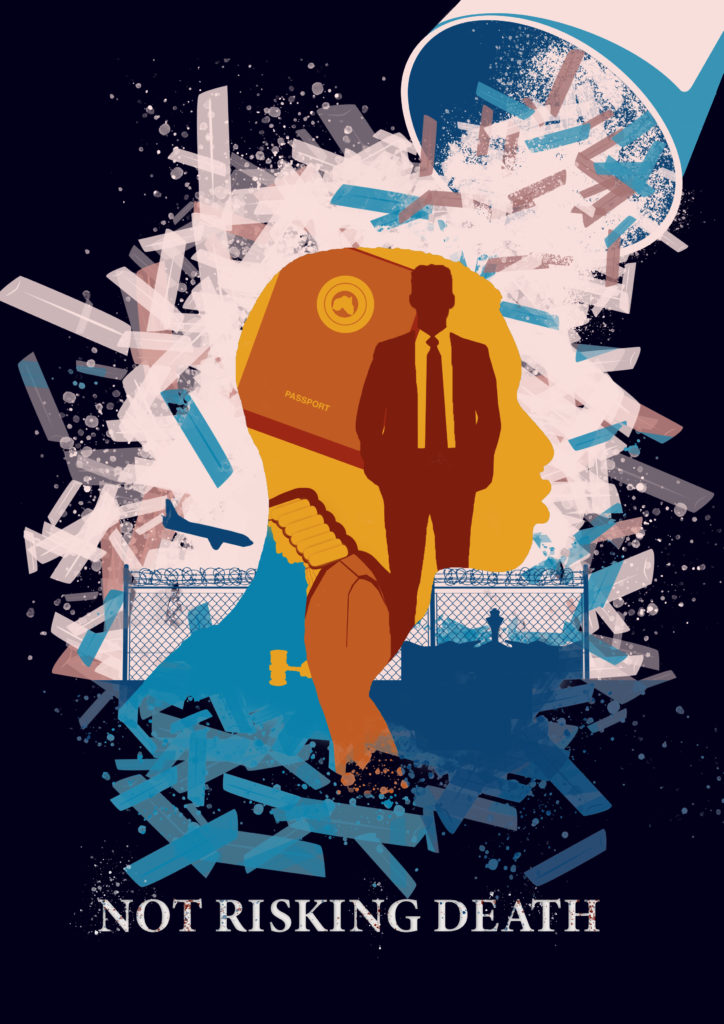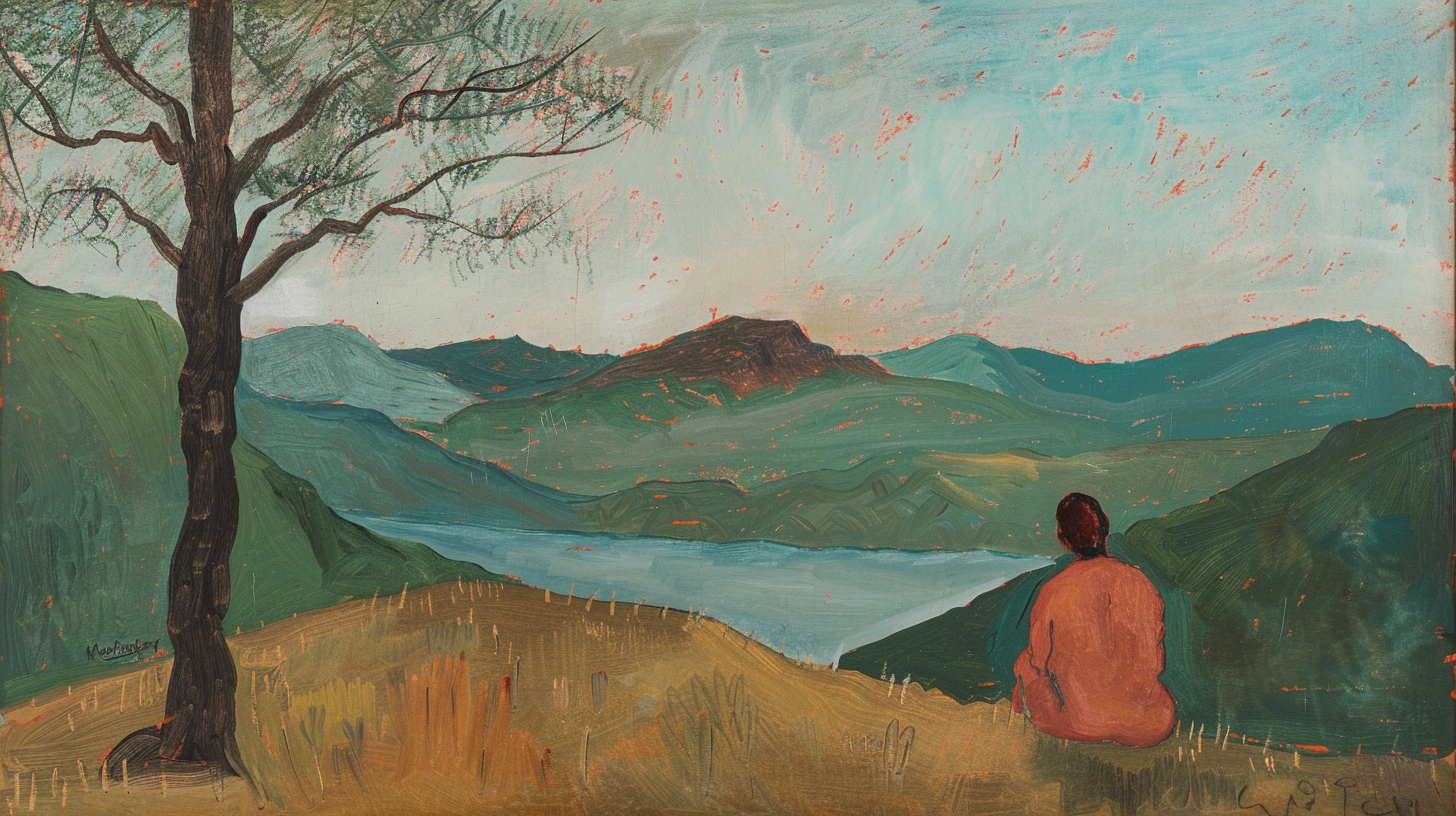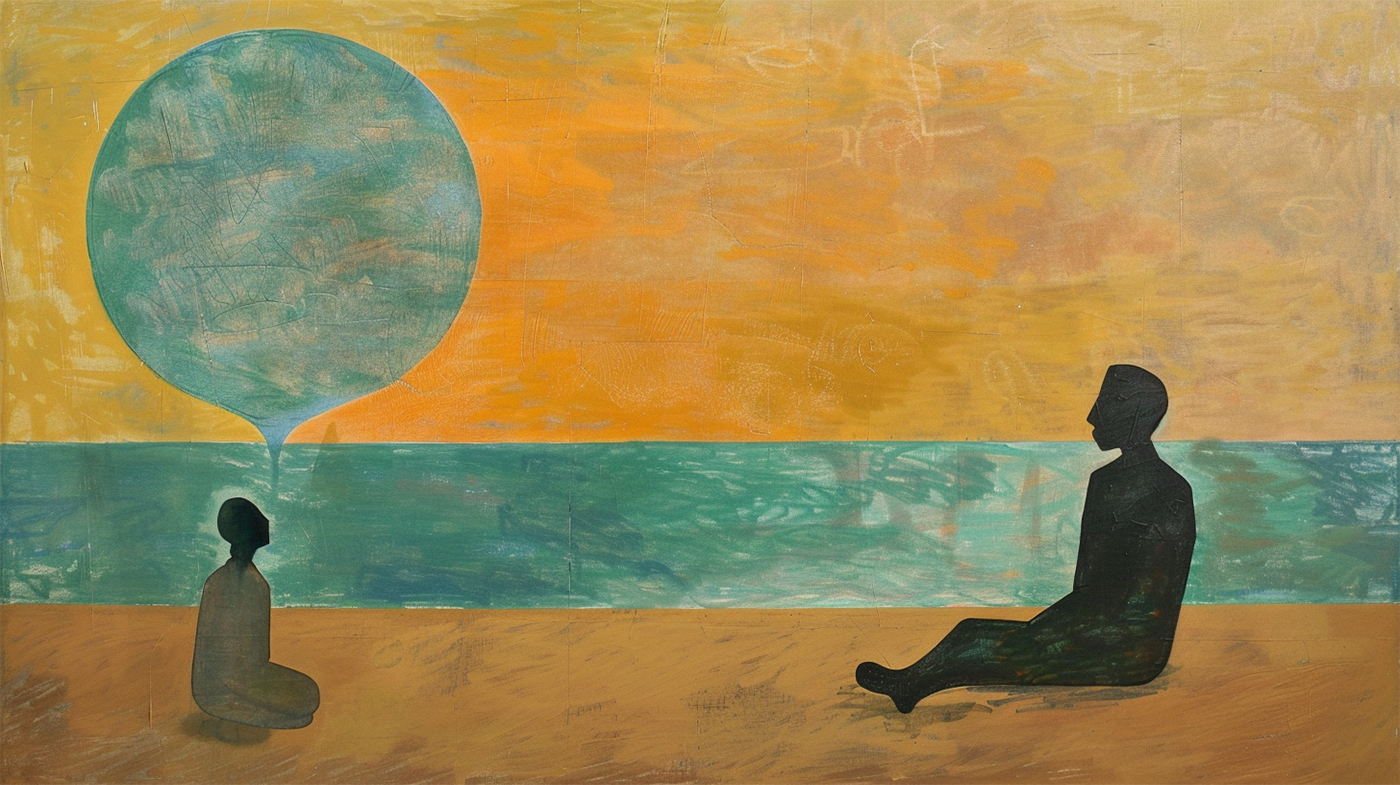I have acted for a slew of African accused that arrived on our shores. All of them were charged with drug trafficking pursuant to section 39B of the Dangerous Drugs Act 1952 (“DDA52”). It is an offence punishable with death.
A sizeable number of my clients were caught at the airport entering Malaysia with luggage containing, amongst other things, items in which drugs are hidden inside, with the occasional swallower. A swallower is the type of drug mule that hides the drugs in capsules he swallows and stores in his stomach until he has to defecate it.
These are what I call fish in the barrel cases.
The facts are short and straightforward; there is little time, too few characters and the barest sliver of space available for reasonable doubt to arise. Their defences are usually held to not raise any reasonable doubt. The most common narrative by the accused for “airport cases” are that they came to Malaysia on account of some business. They were asked a favour by Chief, their boss/uncle/etc., who requested they bring some common items (e.g. soap, shoes, powder tins, a small bag) over to Malaysia as a favour to give to their employee/nephew/etc. Inevitably the latter is nowhere to be found when the accused arrives and, of course, Chief is uncontactable. There are variations to the narrative but this is the DNA. The Malaysian police are not flying to the relevant African country to verify the accused’s story. Since there is no one to support the accused’s narrative whatever explanation the accused gives will inevitably be considered a bare denial or an afterthought. This narrative has failed time and time again. The local cases are replete with examples of that.
Then there are the fish in the pond cases.
These are where the accused is either arrested in open space, a house, or an apartment, for example; situations where the accused is not completely boxed in time and space, and there are more characters around. An example of such a case is when the accused is caught as part of a raid by the police. There are often many officers brought in for a raid. It is also interesting how sometimes there are as many versions as there are officers about how the raid took place, which raises serious issues about what actually happened.
That was the situation one of my Nigerian clients faced. I will call him Obu. He was charged with 39B for a bag of drugs found in an apartment which had at least three other Nigerians with him at the time of arrest. For some reason, three of them were not charged and Obu was left to defend the charge alone. There were sixteen officers that comprised the raiding party, bearing heavy firearms.
Now the thing about Obu was he was unlike any of my previous African drug-offence-related clientele until that point, and even until today. The reason for that was because he was highly educated, which was unusual to me. All my other African clients were of low education. Most finished primary but did not go on to secondary school. Their English was rudimentary. All were poor and clueless. None spoke well. Desperation exuded from their pores. They were simple folk sent on a fool’s errand caught in a hangman’s noose because their lives are cheap and the law unforgiving.
Obu was different. He was intelligent, articulate, and cultured. He was an economics graduate.
His story went like this: An employment agency in Lagos told him they secured him a job in Malaysia as a finance executive in a Malaysian company. He paid their agent fees. They sorted out his visa and flight over. When he arrived in Malaysia, he met with an agent who took his passport on the pretext of sorting out his work permit. He booked a hotel room to stay so he could rest and be ready for his job. When Monday came, there was no such company and so, no job. He called the agent who did not respond and could not be located.
Obu was screwed. He only had enough money for a week at the place he was staying. After that he had no more money.
He went looking for work but he was not taken seriously because he had no passport. It did not help that he was Nigerian. He said he could not even get to the point to show them his credentials. Most of the time they refused to let him in. He said after staying in Malaysia he saw that he should not have come because we do not like his kind here.
He resolved to find legitimate work so he could save enough money to buy a flight ticket home. Although Obu knew of other Nigerians in Malaysia, in his first week he understood what his countrymen were infamous for, so he stayed away from those crowds. He said he did not want to be associated with them or hang out with them lest he be caught for something they did. But then he could not get into the expatriate Nigerian circles in Malaysia either.
Since Obu could not get a job, he decided to trade. He borrowed money from a moneylender at an exorbitant rate to buy items to sell such as pens, belts, lighters, etc. at mamak shops, eateries, and open stall areas. Sales were tough. “If I sold fifty ringgit worth in a week, it’s like Christmas.” He slept wherever he could; alleys, under bridges, and anywhere he found shelter and security no matter how fleeting. He showered in public toilets. used the toilets in malls. Obu did that for almost a year then gave up. All he managed to do in that year was pay back the interest of the sum he borrowed.
Since doing things the legitimate way was not getting him anywhere, he decided to bite the bullet and look for fast but risky money. He would do what he had to do to get the money as quickly as possible to get his passport reissued, buy his flight ticket and then get out of Malaysia. He fell in with a Nigerian group who were looking for fellow countrymen to help with their drug selling operation. He was on probation with them for a a week and had to follow whoever he was assigned to around to learn the ropes. Obu was arrested in the apartment with his cohorts at the end of his first week.
I was assigned counsel by the court for Obu’s case.
When I first spoke to him in prison I could sense the difference about him. He was articulate and spoke with intelligence. He understood the situation and his chances. When we discussed his case it was as if we were discussing someone else’s civil claim. He was calm, collected, and rational. We spoke often during the trial breaks and I looked forward to them. It started when I asked him, Do you know who Chinua Achebe is? And he replied, Of course! I knew we were going to hit if off and we did. From African literature we moved to English literature to life in Lagos, common national issues, racial issues, social issues, and the like. He was well informed, well read, and possessed a cosmopolitan outlook. A natural conversationalist.
Maybe it was all a lie. Maybe he was a master storyteller. But he felt pretty real and talked plenty real too.
I ended up believing and liking Obu. I felt an intellectual kinship with him. I even caught myself wishing the trial would drag itself out a little more so we had more trial breaks for me to enjoy conversations with him. But I also found myself wondering what I would do if I were in his situation – in a foreign country where I stood out like a throbbing sore thumb with society prejudiced against me? What would I have done? Would I have done it differently? Could I have done so? Would I eventually succumb to illegal means in such a desperate situation? Was that justified?
Before the trial, I wrote in for a plea bargain but that was rejected. So trial commenced and chugged along. There was little of interest for the defence until it came to the testimony of a few of the raiding officers. They gave such varying accounts of events and insensible explanations there was serious doubt who was where when what happened and how. Despite that, I did not think that decisive enough for the defence to succeed although the situation contained the potentialities for it. As it stood, things looked better for Obu, but we still were not done with the rest of the prosecution evidence. The investigating officer had not yet been called. He was in a position to repair vital shortcomings in the prosecution’s case. So the case was too soon to call; in fact, it is always too soon to call.
At the trial break after the last raiding officer left the stand, the DPP came over and said he was interested in the plea bargain we wrote in for earlier. We discussed the matter and I said I would take it to Obu. I explained to Obu how the case was finely balanced at the moment. I felt there might be a shot at winning but I did not know how much. But the cost of that shot would be death if he lost. Or he could plead guilty to a 39A(2) DDA52 and suffer imprisonment of a minimum of five years to life, and a minimum of 10 lashes of the whip.
“You decide for me, sir. You know best.”
“I cannot decide for you, Obu. I can only advise you. You have to make the decision yourself.”
“I know. But I know you and trust you to make the right decision.”
No amount of persuasion would make him relent. So I took it on myself to think about it and decide.
The court adjourned the trial for three days for us to consider the plea bargain.
What made me hesitate was that I felt we might find more favourable witnesses as we went along. There was the niggling, lingering sense of it. But to make a decision for a case of this magnitude on a vague sense of feel felt flimsy. The other thing that made me hesitate was the idea that Obu would be whipped and imprisoned for a long time. That didn’t sit well with me. I thought him an unlucky man who did not deserve his misfortune. A good but unfortunate man forced to bow to a system that despises and shuns him. He deserved an acquittal from his situation.
It felt wrong that Obu’s potential will now be whipped to split and then destroyed over the next decade in prison. I turned the case over and over again to find something else to give me some psychological assurance that we had a chance at going for an acquittal. There was none. It was what it was. Nothing could give me any certainty to pushing on with the case. All this took place over a feverish and anxious sleepless three nights until the day for continued trial, if the plea bargain did not happen. I do not regret it because it gave me moral clarity in how to decide. Or so I thought.
When Obu was brought into court, I went to him and told him I had decided.
“Obu, I decide a plea of guilty. Because it means life. If you ask me to choose between the certainty of life with imprisonment against the possibility of freedom with the risk of death, I will choose life. I don’t know what life that is or will be. But it is life. What do you think?”
“You don’t think I can win?”
“I feel like maybe we could. But it’s a big, big maybe. And I am not willing to risk your life to find out.”
“Very well. Do you know how many years I will get?”
“I don’t know. The DPP didn’t want to agree. He preferred to leave it to the judge. So we will have to argue about sentence. But ten strokes is a guarantee because it’s a minimum. And five years prison is a minimum. The judges have no choice with that.”
“Alright then. I will plead guilty to the other provision.”
Obu pleaded guilty to the amended charge under section 39A(2) DDA52. I laid out his circumstance as I described it earlier to the judge to argue for a minimum sentence. Despite a lively sentencing hearing, the judge decided on ‘sentencing trends’ and sentenced him to 16 years and 10 strokes.
After the judge adjourned and departed, Obu slid back the latch from the dock and lumbered out. He did not rush but seem dazed as he unsteadily got out of the dock. I was walking back from the interpreter’s table to my bit of the table when Obu appeared in front of me and cried. His whole body shuddered with his sobs. His calm and collected front collapsed. “Oh god. Oh my god. Oh my god.” he bellowed. I didn’t know whether to pat him on the back or run. Was he angry at me? The court officers were up and approaching us. Obu dropped to his knees and continued sobbing. “Thank you, God. Thank you. Thank you, God. Oh, God!” he repeated through a grimace, his eyes firmly shut, the tears streaming out his eyes. Maybe not?
It felt as if he was conveying a mix of conflicting feelings all at once. It was heart wrenching to watch.
The court officers rushed over and helped Obu up. They cuffed him and were leading him out. He recovered his composure and called out to me. “I am sorry about my reaction. I was upset at hearing the sentence. Thank you for your help, sir. And for the conversations. It’s been a while since I could have such conversations with anyone here. Thank you. Good bye.” The court officers took him in to the lock up and prepared to take him to serve his sentence. I was sad to see him go. That was the last time I saw Obu.
As he was led out, I thought back to what I had said to him: certainty of life with imprisonment – wasn’t that a kind of death? And freedom at the risk of death – wasn’t that just life? So much for moral clarity. I don’t know what I would have chosen for myself. It was death on the one hand and a kind of death on the other. Neither had any appeal.
I packed my things, went back to the office and closed my file on Obu’s case.
Related Posts
- Not Risking Death | From the Atelier
From the Atelier I commissioned Hanis Nadzir for this and two others. She was introduced…
- The Occult in Legal Practice | From the Atelier
From the Atelier Because I liked Hanis Nadzir's dramatic movie posters style, I thought she…
- To argue or not to argue?
I once had a dilemma; it was when I conducted a criminal appeal in the…
- Taking Chances
A second year law student once asked me in an email interview, If you did…
- First Impressions Are Something But Not Everything
Before I met CS Lim, I would click naturally and immediately with the people that…









2 thoughts on “Not Risking Death”
I opine usually most cocky DPP would not offer plea bargain.When it happened ,it is most likely they sensed there is “serious gap in the chain of causation and or no conclusiveness ” in the prosecution case. Here only One Obu was charged . What has happened to the other Nigerians who were with him then ? Why were they not charged as well ? Were they called to testify if they turned to become Prosecution’s witness ? You left out the narratives of this important gap . Need on Mohd Radzi’s ,Bala’s case law & established principle on exclusive possessio yn ,I would proceed with full trial ie there is good chance of getting Obu acquitted in the circumstances of the car . Thoo case ,can’t remember the exact name ,sorry, a Supreme Court decision held by Edgar Joseph Jr has reference that it would be unjust to convict where there is a reasonable doubt .
Sometimes we have to take a gamble ,after all there is still room for appeal til Federal Court .
Whatever may be ,it is a pleasure to read your publication